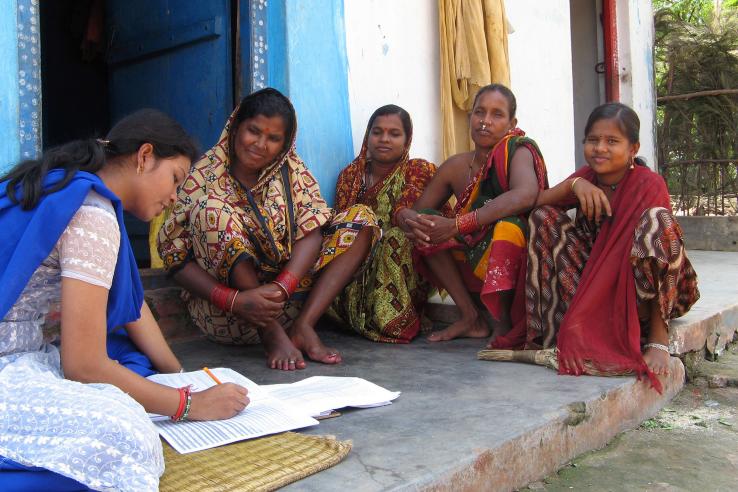Ten years of rigorous research and policy impact in South Asia

I write this looking back on ten years of J-PAL’s South Asia office being operational – a decade of working towards our mission to reduce poverty by ensuring that policy is informed by scientific evidence.
We believe that demand-driven research can move the frontiers in the fight against poverty and inequality, and in cost-effective and measurable ways.
Whether we are thinking about innovative ways to bring women out of extreme poverty, improve children’s educational attainment, or increase full immunization rates for under-five-year-olds; our work is to fill critical evidence gaps.
This work is globally informed by evidence generated from research across the world, and locally grounded to enable context-specific policy decisions. Our scientific evaluations have debunked commonly held beliefs, and have identified what works. Driven by our vision for evidence-based policy, J-PAL affiliated professors and dedicated staff engage with our partners to increase know-how and create positive social change.
At J-PAL South Asia, like at J-PAL’s other regional offices, we do this through coordinated research, policy outreach, and capacity building.
We conduct impact evaluations to generate the evidence, and in this, we are supported by our hundred-strong research staff and over a thousand field staff on the ground collecting and managing high quality data digitally.
We believe that the pathway to increase the number of people reached by effective policies and programs is to work closely with governments and civil society organizations to bring this research to policymakers, supporting them in replication and scaling up of evidence-backed programs. To date, over 300 million people have been reached by these scale-ups around the world.
Our policy team has facilitated state-wide partnerships with governments to institutionalize a culture of evidence-informed decision making, engaged closely with journalists and media houses, and teamed up with donors to generate greater investment in producing rigorous evidence and funding scale-ups.
Our dedicated training team, working throughout South Asia, has strengthened the capacity of practitioners to run randomized evaluations, and their understanding of how evidence can inform their work and decisions.
After ten years of working toward our goal of ensuring that policy is informed by scientific evidence, we have increased the data and evidence generated to inform policy decisions across sectors and states in India and South Asia. We also have more commitments and greater readiness from governments to collaborate with academic organizations to measure and scale up impact. This means we now have many more opportunities for growth.
All of this would not have been possible without the support of our funding and implementation partners, and their belief in J-PAL’s mission and vision.
We look forward to engaging with our partners to innovate, overcome new challenges, and develop a shared vision for J-PAL’s work to expand into the most important areas for measurable poverty reduction.
